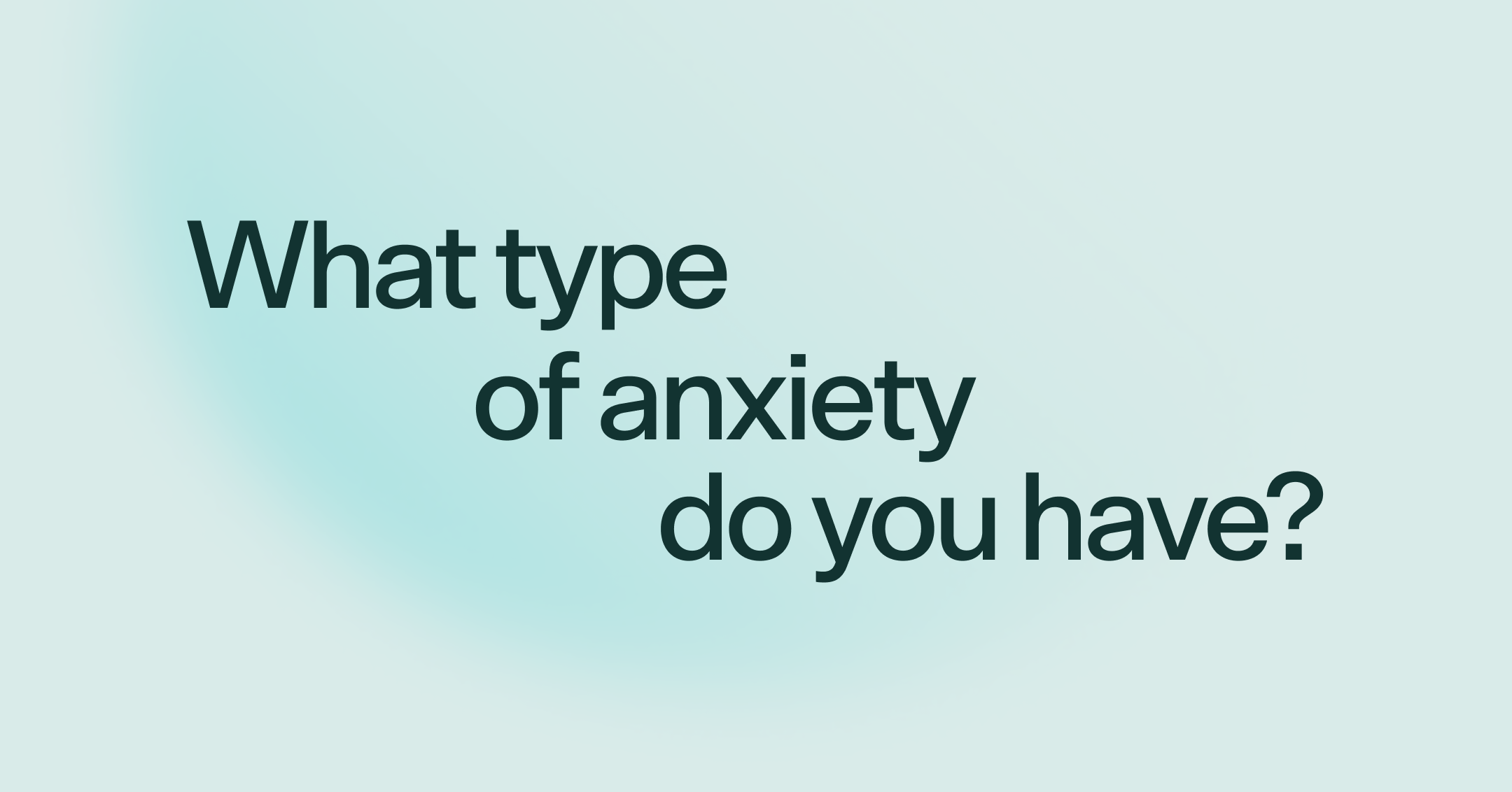Anxiety disorders involve more than just feeling nervous. They can bring intense waves of panic that hit suddenly or feel much bigger than the situation calls for.
Anxiety shows up in different ways, like generalized anxiety disorder, panic attacks, or social anxiety. Knowing exactly what type you’re facing can help you get the right support and treatment.
Treatment anxiety often involves a combination of approaches like cognitive behavioral therapy (CBT), lifestyle changes, support networks, relaxation techniques, and sometimes medication.
Everyone feels anxious now and then. It’s a normal reaction to stress. But for some people, anxiety lingers, making daily life harder. Anxiety disorders are very common, affecting 40 million adults in the U.S. each year.
Figuring out what kind of anxiety disorder you have can be challenging because symptoms often overlap. A good way to start is noticing what triggers your anxiety — like being around people, worrying all the time, or sudden panic attacks — and how your mind and body react when it happens.
The good news is that anxiety disorders are treatable. Identifying the type of anxiety you’re experiencing can make it much easier to find the support and treatment that works for you.
Types of anxiety disorders
Anxiety doesn’t look the same for everyone. There are several types — each with distinct symptoms and challenges.
For a diagnosis, anxiety symptoms must be present for at least six months and significantly interfere with your work, school, relationships, or daily life.
Some of the most common types of anxiety disorders include:
Generalized anxiety disorder (GAD): This is when someone worries a lot about everyday things and can’t seem to stop, even when there’s no obvious reason. It might feel like their brain just won’t shut off. They may also feel tired, restless, tense, easily irritated, or have trouble focusing. Therapists also use the seven-item anxiety scale (GAD-7) when screening for GAD.
Panic disorder: This condition involves frequent, sudden, and intense episodes of fear called panic attacks. These can cause a racing heart, shortness of breath, dizziness, and a feeling that something terrible is happening.
Social anxiety disorder (SAD): This is a strong fear of social situations or being judged by others. People might avoid speaking in public, meeting new people, or being the center of attention because it makes them feel embarrassed or anxious.
Separation anxiety: Someone with separation anxiety feels very upset or scared when they’re away from their loved one. They might worry something will happen to that person and often feel the need to remain close in their presence. While separation anxiety is common in kids, it can also affect adults.
Post-traumatic stress disorder (PTSD): This type of anxiety can happen after a scary or traumatic event, like an accident, natural disaster, or ongoing abuse. People might have nightmares, flashbacks, or feel emotionally numb. They can also feel jumpy or on edge a lot of the time.
Phobias: People with phobias have a strong fear of a specific object or situation, like flying, heights, or spiders. Even if the source of the phobia doesn’t present an actual threat, the fear caused by them is very real and can lead to people avoiding whatever causes their fear.
Health anxiety: This type of anxiety involves a persistent fear about having a serious illness, even when medical tests show no cause for concern. Health anxiety often leads to repeatedly checking symptoms online, seeking reassurance, or avoiding doctors out of fear.
The care you need, when you need it
Learn how Rula can support your mental health journey
Take our anxiety type quiz
If you’re living with anxiety, one of the most important steps toward feeling better is getting a clear and accurate diagnosis.
If you often feel restless, on edge, or caught in a cycle of constant worrying or overthinking, our quiz, developed by Rula mental health professionals, can help.* While not a substitute for a professional evaluation, it can offer insight into how anxiety might be affecting your mental health.
The quiz won’t diagnose an anxiety disorder, but your results can be a helpful starting point for a conversation with a licensed therapist, who can provide an accurate diagnosis and personalized support.
Quiz questions:
Do you tend to feel anxious or worried about multiple things regularly?
Yes
No
Do your worries tend to impact your ability to complete tasks?
Yes
No
Do your worries tend to impact your ability to make decisions?
Yes
No
Do you find that you’re more fearful of one or two specific things?
Yes
No
Do you find that you’re most fearful or anxious about social situations?
Yes
No
Have you experienced panic attacks?
Yes
No
Do you frequently worry about experiencing another panic attack?
Yes
No
When you’re away from a trusted loved one, do you find it difficult to complete your daily obligations?
Yes
No
Do you find it impossible to speak in certain settings?
Yes
No
Do you think about your health and potential illness on a daily basis?
Yes
No
Do you tend to assume mild ailments are severe or life threatening?
Yes
No
*_Quiz content written by Lolly Coleman, MS, LMFT._
Interpreting your quiz results
If you answered yes to any of these questions and your anxiety is negatively impacting your life, it could signal that you’re living with an anxiety disorder.
Answering yes to the first three questions may point to generalized anxiety. Saying yes to questions four and five could suggest a social or specific phobia. If you answered yes to questions six and seven, it may indicate panic disorder. A yes to questions 10 and 11 might point to separation anxiety, while questions 13 and 14 could signal health anxiety.
If any of these patterns sound familiar, consider reaching out to a mental health professional who can provide a proper diagnosis and help you determine the best path forward.
Offer yourself patience and self-compassion during this time. Understanding your anxiety can be layered, and recognizing patterns in your thoughts and feelings can be a powerful first step toward finding the right support.

Ashley Ayala, LMFT
Clinical reviewer
Find care with Rula
Living with an anxiety disorder can take a toll on your health, relationships, and daily life — but help is available. Finding a therapist who can provide you with the proper diagnosis will make sure you receive the treatment that will best support you.
At Rula, we’re committed to delivering a comprehensive behavioral health experience that helps people feel seen and understood so they can get back to feeling their best.
Rula makes it easier to find a licensed therapist or psychiatric provider who accepts your insurance so you don’t have to choose between affordable care and excellent care. With a diverse network of more than 15,000 providers, 24/7 crisis support, and appointments available as soon as tomorrow, we’re here to help you make progress — wherever you are on your mental health journey.
Rula's editorial process
Rula's editorial team is on a mission to make science-backed mental health insights accessible and practical for every person seeking to better understand or improve mental wellness.
Members of Rula’s clinical leadership team and other expert providers contribute to all published content, offering guidance on themes and insights based on their firsthand experience in the field. Every piece of content is thoroughly reviewed by a clinician before publishing.




